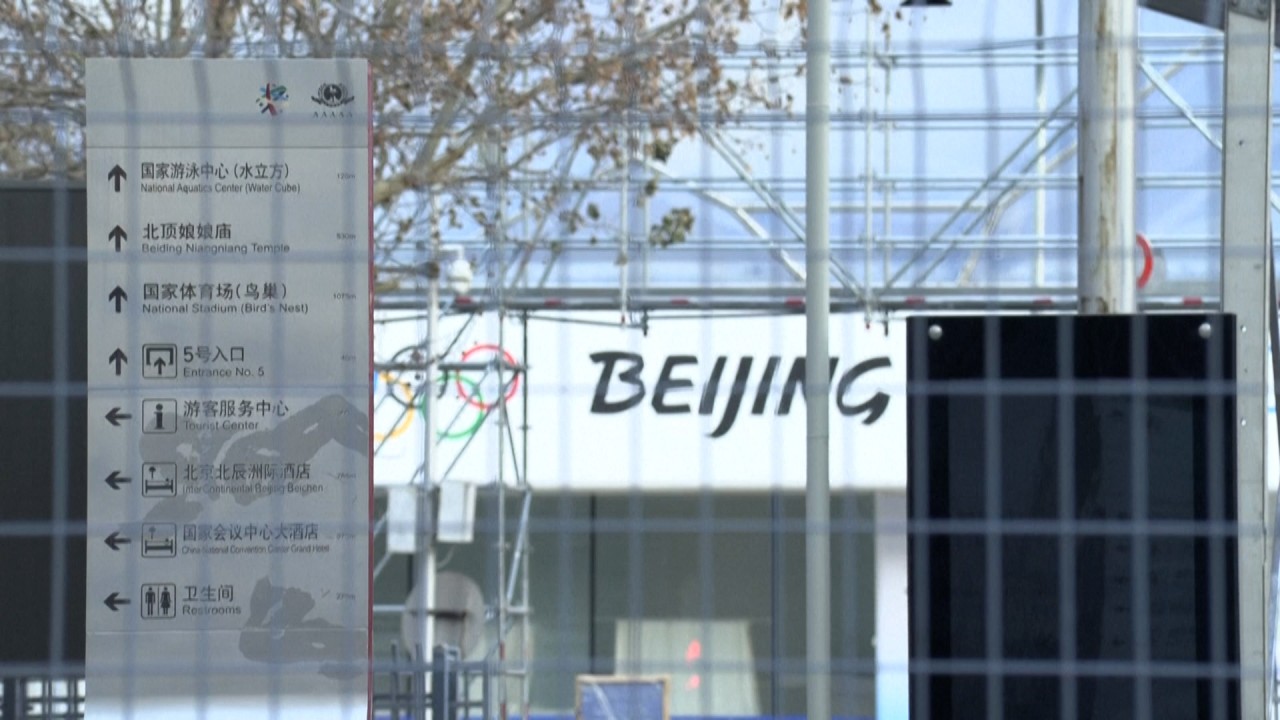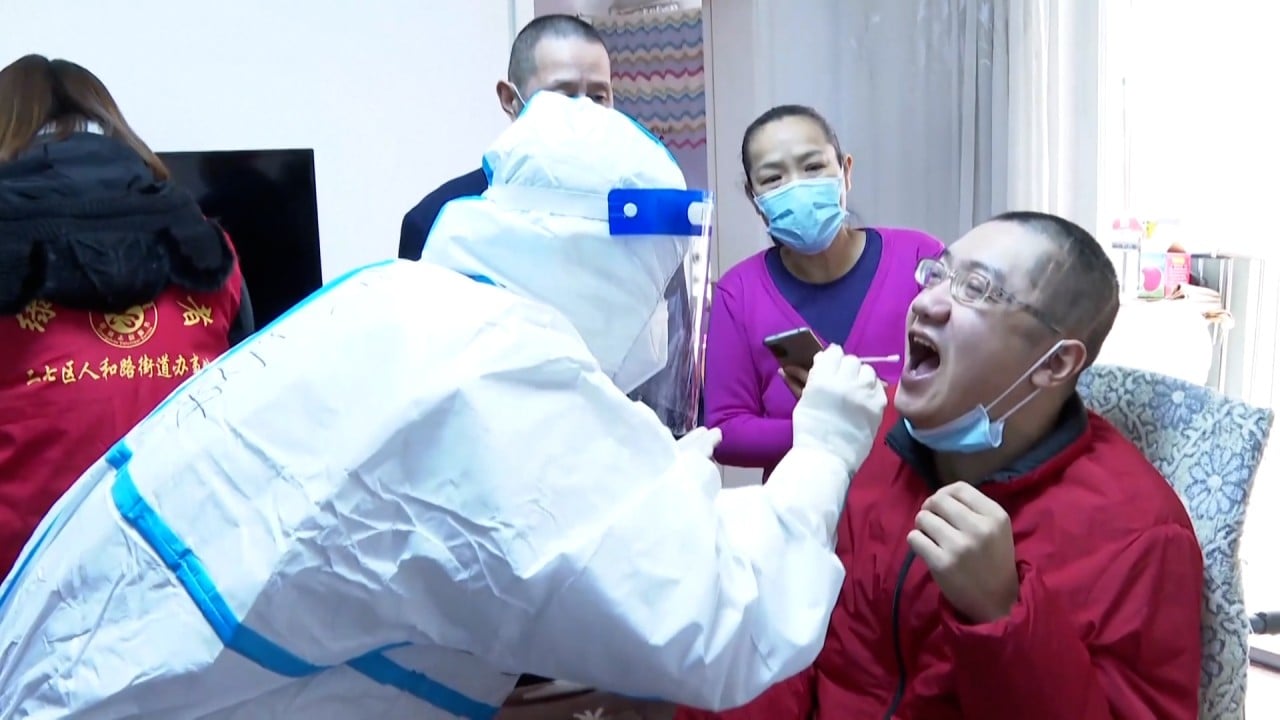
China’s Omicron threat ‘under control’, no lockdown planned for Beijing Winter Olympics, organisers say
- Organising committee says coronavirus clusters can be contained within the Games ‘bubble’ and protocol will only be changed due to a large-scale outbreak
- China’s pandemic controls are being tested by sporadic coronavirus outbreaks, including the first local infections of the highly-transmissible Omicron variant
China has no intention of locking down its capital or changing its coronavirus containment rules for the upcoming Beijing Winter Olympics, despite growing concern about local transmission of the Omicron variant, the organising committee said on Tuesday, though it is closely monitoring new virus clusters.
“The overall situation remains under control,” said Huang, who is in charge of pandemic prevention efforts. He added there was no plan to seal off Beijing or the neighbouring province of Hebei.
European diplomats have expressed concern to the South China Morning Post that Beijing’s Olympic “bubble” might not be tight enough to prevent an imported coronavirus infection spreading from participants to the public. They also questioned if a detailed emergency plan was in place to contain an outbreak among participants.
While the organising committee was content with current virus containment measures, Politburo member Guo Shengkun on Sunday said safeguards for the Beijing Winter Olympics should be beefed up.
“We should strengthen and improve various emergency plans and mechanisms to ensure ‘zero mistakes’ and ‘zero error’,” Guo, who is secretary of the central political and legal affairs commission, was quoted as saying by state-owned Xinhua News Agency.
China’s zero-Covid policy: how does it work?
Tianjin – which is home to many people who commute to Beijing – reported the country’s first two Omicron cases on Saturday. The variant has since been found in Anyang in central Henan province and the eastern city of Wuxi.
“Our medical team, prevention team and many experts have been paying attention to the spread of the virus and how much harm might it bring, we are continuing to assess it,” said Huang, from the Games committee.
The organising committee was confident coronavirus clusters could be contained within the bubble and protocol would only be changed in the event of a large-scale outbreak, Huang said.
If a large-scale [outbreak] happens, it will definitely affect the schedule of the Games
“But we are keeping the room for adjustment,” he said. “If a large-scale [outbreak] happens, it will definitely affect the schedule of the Games.”
On Sunday, the Beijing government told residents to avoid all contact with Olympic vehicles, including in the event of a car crash.
Organisers have set up a special desk in the local emergency service system to help any Games participant hurt on the city’s roads, and put 50 ambulances on standby near venues in Beijing and neighbouring Zhangjiakou.
“However, if there is a sudden cardiac arrest, we also hope that people with first aid skills at the scene can help out first,” he said.
The pandemic had increased spending on control measures for the Winter Olympics, said Zhao Weidong, director of communications at the organising committee.
But the overall budget remained basically the same as in the bid made in 2015, and unnecessary expenditure had been cut, he told reporters on Tuesday.
Beijing announced a budget of US$3.9 billion for the Winter Olympics, less than one-tenth of the US$43 billion spent on the 2008 Summer Olympics.
So far about 7,600 athletes have registered for the event in Beijing, but the figures are still in flux as some qualifiers have not finished, Zhao said.
Authorities have not yet announced whether domestic audiences will be allowed to watch, even though the Games are set to kick off in about three weeks.
The organising committee stated previously no overseas spectators will be allowed.
“The specific prevention and control requirements for domestic audiences and specific action plans are being studied and formulated,” Zhao said.



